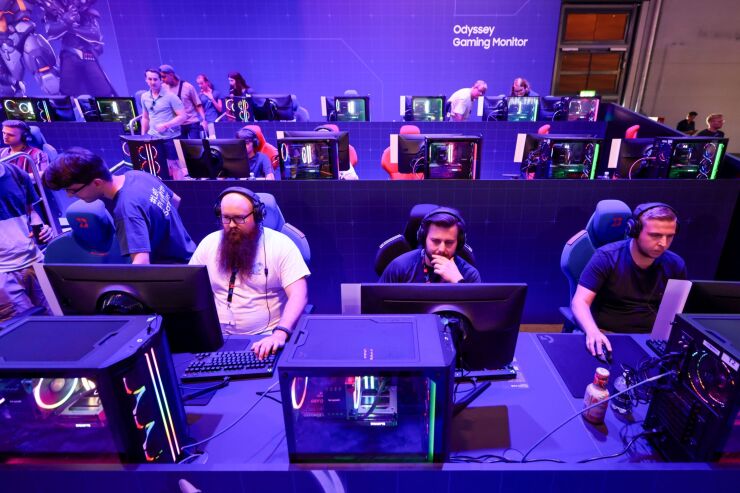The
In the report, the bureau cited
The video game economy includes companies that are not game publishers, encompassing many large tech companies, as well. For example, according to
"As more banking and payments activity takes place in video games and virtual worlds, the [bureau] is looking at ways to protect consumers from fraud and scams," said CFPB Director Rohit Chopra in
Chopra added in
The report documents the various ways in which value is stored and transferred in games — including to and from fiat currency. In cases where games do not allow players to convert from in-game value into fiat currency, third-party systems are sometimes available to act as a bridge.
JPMorgan Chase and HSBC are among the banks that have set up shop in virtual worlds or plan to.
One game that allows conversions to and from fiat currency is Second Life, owned by Linden Labs; players can use Linden Dollars to purchase virtual items, pay other players and buy services in-game. Players can buy Linden Dollars with U.S. dollars, and they can convert their Linden Dollars back to U.S. dollars. Withdrawing money from the game includes a fee of 5% and can take about 30 days.
Value can also be stored and transferred in games in the form of virtual items, usually ornamental or cosmetic goods that have only an aesthetic impact on the game. These items can sometimes be traded between players as payment, sometimes for large amounts of money. In one case last year, a player sold a set of knife and gun skins in the game Counter-Strike
Where there is value, there is also fraud and money laundering. The bureau's report cited a 2023 financial filing by Roblox, the company that publishes a popular game by the same name, indicating that the company had total chargebacks equivalent to 3% of the total bookings it had that year. In other words, the game generated $3.5 billion in in-game transactions, but the company lost $110 million to fraud.
The report advised financial institutions to be aware of the potential risks associated with gaming assets, the potential for fraud and money laundering within gaming markets and the role of gaming-specific financial products that resemble traditional financial services.
The report concluded that "consumer protection laws apply to banking and payment systems that facilitate the storage and exchange of valuable assets," and as such, the bureau is monitoring gaming platforms where financial products and services are offered. The bureau's report advised video game makers to provide consumer protections similar to those offered by traditional banking and payment systems.
In reviewing the report, attorneys for law firm Sheppard Mullin advised game companies to carefully review the report and analyze their current practices to identify action they can take immediately to minimize risks mentioned in the report, particularly ensuring that players are aware of how the company uses their data and assessing whether their products are subject to laws such as the Electronics Funds Transfer Act.
"The CFPB continues to signal its commitment to monitoring non-traditional markets and go where financial products and services may be offered (regardless of infrastructure)," wrote attorneys for the firm in a blog post. "The Bureau has not been shy about using its risk-based supervision authority to take a closer look at non-bank institutions that offer products that may pose a 'risk to consumers.'"







